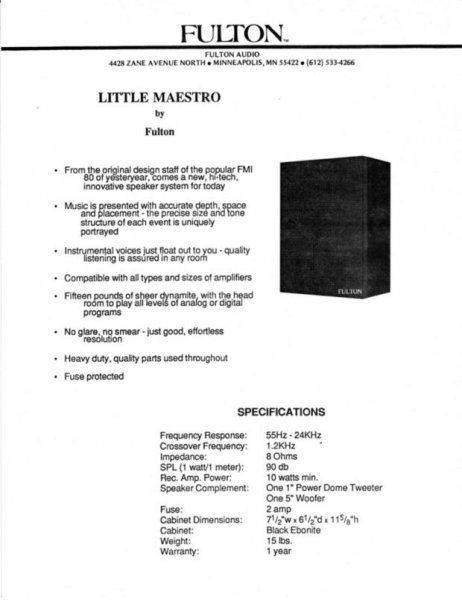The quote in the OP that is attributed to Phil Jackson (KEF) is actually a quote from Robert Harley. Robert weighed in on this subject just the other day.
http://www.theabsolutesound.com/articles/from-the-editor-its-all-good/
That being said, I think Robert if full of crap on this.
The first offense is in labeling people as fundamentalist to begin with. As if this isn't inflammatory. The second problem is to claim that this "obviates the need for critical thinking". Quite the contrary. I've been part of this hobby for multiple decades. My systems were disjointed at best, always trying to find that perfect "balance" that was so easily disrupted by changing any singular piece. Many of those years was spent wandering around aimlessly by believing (at least in part) all the BS that's spouted from marketing departments. It wasn't until I BEGAN CRITICALLY THINKING about all of it that I started to find true satisfaction. By contemplating the thing that gave me enjoyment, understanding the technology behind it, applying the same process to other equipment, and so on I eventually assembled a system that I find imminently satisfying. Every single piece works in unison because they are all based on the same theoretical ideals. My system is cohesive and it's final performance is greater than the sum of it's parts precisely because I applied critical thinking into assembling it.
Systems that others enjoy now often leave me flat. Try as I might to enjoy them I can't get past the fact that they are, fundamentally, boring to me now. I'm not deciding that I CAN'T enjoy them. I don't first look at the technical aspects of a system that is new to me and decide whether or not I'll like it. I listen first. But precisely because of years of critical thinking I can now often predict the existence of certain technological and design parameters being present in a system due to what I hear.
If someone else likes it, good for them. But I'd rather listen to my system where things actually sound real.
Robert Harley ends his piece by reiterating the title. "It's all good."
How exactly can someone claim a higher degree of critical thinking only then to claim that everything is good?!
This is precisely the thing that is causing J. Gordon Holt to turn in his grave. Long past are the days where many used critical thinking in an attempt to achieve actual fidelity. Now, with "It's ALL good", we may as well just shop at Best Buy.


